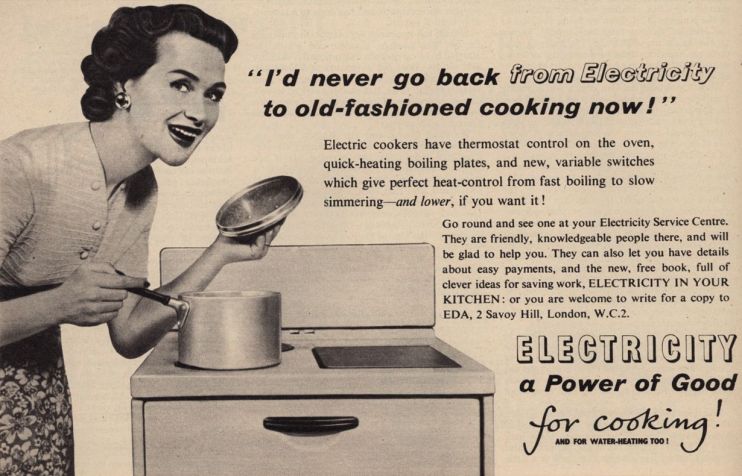The ASA’s puritanical ban spree is a flagrant assault on free speech

When the Committees of Advertising Practice (CAP) first announced that it would ban “gender stereotypes that are likely to cause harm, or serious or widespread offence” in December 2017, I noted that crackdowns on adverts are often veiled attacks on free speech.
The ads that the CAP and the Advertising Standards Authority (ASA) were flagging at the time included an Aptamil one showing a baby girl growing into a ballerina and supermodel Cara Delavigne posing nude for a perfume ad. The only problem seemed to be the state regulator’s extreme sensitivity towards the depiction of female athletes and prudishness when confronted with Delavigne’s side-boob.
Still, many argued that controlled steps to eliminate gender stereotyping were necessary to deal with societal issues. The powers would be used to weed out sexist material, we were told, while still allowing creativity and free expression to flourish.
Sure – because when you give regulators sweeping powers to control and ban speech, history tells us that they always acts in a fair and balanced way.
The ban came into force in June, and the first set of ads deemed too “harmful” confirm that the ASA has no interest in making fair or thoughtful decisions about gender depiction.
A Volkswagen commercial has been rejected, because it featured people handling difficult circumstances, including two astronauts in space and a new mother with her pram. This, according to the ASA, was depicting a role that was “stereotypically associated with women”, and thus needed to be banned from public consumption.
It has never struck me as problematic that the role of a new mother might be associated with women, as indeed it is women that become mothers – but this could also be the result of years of brainwashing, caused by harmful and offensive car commercials, so let’s let it go.
Ironically, the second commercial to fail the ASA censorship test, from food giant Mondelez UK, featured two new dads and their babies. The ad jokes that the men get temporarily distracted by Philadelphia cheese, and accidentally leave a baby on the conveyor belt.
Despite acknowledging that the ad was meant to be humorous, illustrating a “light-hearted” and “comical” moment, the joke was deemed too offensive by the regulator and isn’t allowed anywhere near you.
So silly dads have been banned from ads, as have conscientious new mums, begging the question: what narrow, ASA interpretation of a parent can be portrayed? And should an advert that doesn’t show a female astronaut amount to an outright ban?
Or to get right down to basics, why has the ASA been empowered to turn its subjective, overtly sensitive, puritanical interpretations into rulings?
The regulator has moved so far past its principal role of ensuring that lies are not perpetuated in adverts to policing what is and is not humorous, what depicts a good parent, and what non-offensive content can now be classified as causing “widespread offence” (three and one people complained about the banned ads, respectively).
Defending big companies and advertising agencies is never a popular thing to do, but the ASA’s abuse of its new powers demonstrates why the principles that protect free speech must be defended constantly, even if the victim is not obviously the most needy.
People are nowhere near as gullible as regulators make us out to be. Women and girls do not watch an advert and believe that they are forced to follow the mother’s pram-pushing example. Indeed, the only force involved here is the state’s power to “shield” us from what it deems impermissible.
No free society can be in the business of banning mainstream adverts. For all our sakes, this new wave of paternalistic censorship must be stopped in its tracks.
Main image credit: Getty